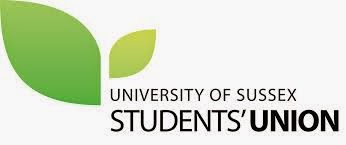The University of Sussex Students Union held a referendum on the question:
Should the Students’ Union endorse a boycott of Israeli academic and cultural institutions?
The motion failed to pass by a vote of 904-649.
Unfortunately, even the "no" vote argument was framed as anti-Israel:
No one can deny the suffering of the Palestinian people at the hands of the Israeli government. For too long, they have been deprived of their sovereignty, as well as their basic civil and human rights, at the hands of a ruthless military occupation. At Sussex, we have a proud tradition of standing up for the victims of injustice and oppression. This cannot be an exception.This anti-boycott argument shows, very clearly, how embedded the lies and distortions of the Israel-hater are in British universities.
But this referendum is not about solidarity with the Palestinian people. Throughout the history of the conflict, Israeli academics have been known for their outspokenly left-wing and pro-peace views. According to Sari Nusseibeh, the Palestinian president of al-Quds University in East Jerusalem, ‘if you look at Israeli society, it is within the academic community that we’ve had the most progressive pro-peace views and views that have come out in favour of seeing us as equals… If you want to punish any sector, this is the last one to approach.’
The academic boycott of South Africa was a result of the apartheid policy to restrict the black population’s access to higher education. Within the legal borders of the state of Israel, there is no such policy. A significant percentage of Israel’s students are Arab Palestinians. And while advocates of a boycott may point to the fact that the Israeli military restricts access to higher education within the occupied territories, this is a result of military rule and occupation, not the policies of Israeli universities themselves.
An academic boycott of Israeli universities would be a form of collective punishment. Israel’s entire academic establishment cannot be held responsible for the actions of its government, as just as in Britain, our students and lecturers often disagree entirely with our government’s actions.
We cannot afford to lose the moral high ground when it comes to our solidarity with the Palestinians – this only serves to strengthen the arguments of chauvinistic right-wingers who will point to this boycott as an example of anti-Semitic prejudice. Widely considered as one of the most prominent activists for the Palestinian cause, Noam Chomsky has stated in numerous interviews that an academic boycott ‘will only strengthen support for Israel’, and will seriously hurt Palestinians in the process.
Instead, we should be encouraging co-operation with critical and progressive elements within Israeli academia. Otherwise, we risk isolating Israeli students and lecturers solely by virtue of their nationality.
Nothing about how hypocritical it is to single out Israel and only Israel as a place to have an academic boycott, while every truly repressive regime on the planet is not subject to such discussions by the oh-so-progressive students who pretend to care so much about the oppressed. The students are not being taught the most basic critical thinking skills.
Even so, while it is not a victory for the pro-Israel side, it is a big loss for the haters.

 Elder of Ziyon
Elder of Ziyon






















